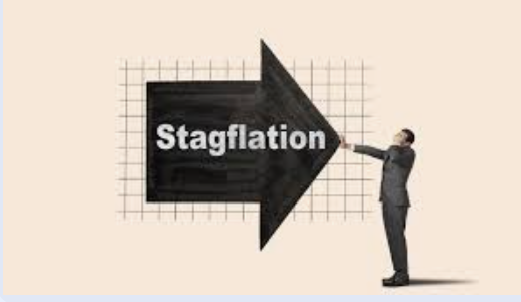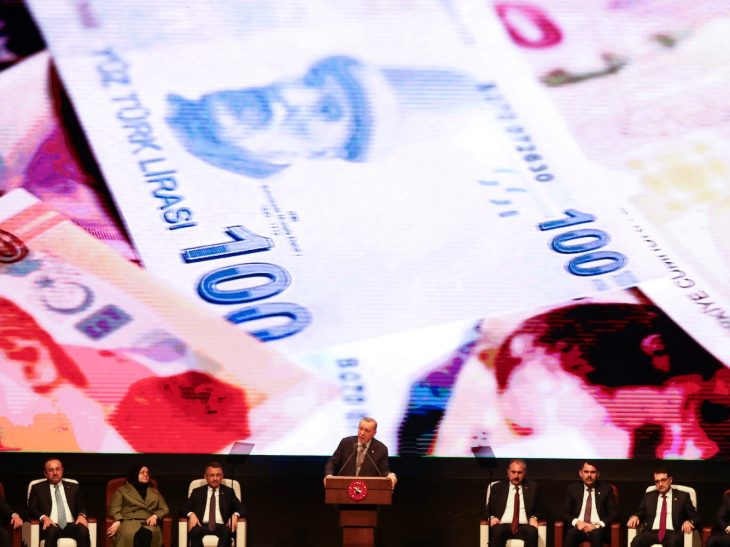Turkish economy battling stagflation
 stagflation
stagflation
Turkey’s 2Q2024 GDP will be announced in the first week of September, which will contain little important information, because Turkstat releases national income data too late. Influential think tank BETAM, using its patented nowcast model predicted a 0.5% in QoQ, and 0.6% decline in YoY national income growth. Survey data from July and August strongly suggest that economic activity failed to recover in summer months.
August inflation data to be released on Tuesday by Turkstat will show YoY CPI falling precipitously, with the monthly rate down to 1.5% or so judging from consensus surveys. Yet, there is a world of difference between official data and what the private surveys reveal.
Thus, it is fair to say that Turkey may actually be experiencing an excruciating episode of stagflation at this juncture.
According to research by Akbank: “Data for August indicate that the slowdown trend that has spread widely across sectors in the last 3-4 months continues unabated. While both domestic and external demand are effective in this slowdown, the data follow a course more consistent with a gradual cooling rather than a sharp slowdown. Expectations for the future are that this trend will continue similarly in the short term.
[embed]https://www.youtube.com/watch?v=bPo2f5azRIY&t=956s[/embed]
Responding to weakening demand conditions, the slow-down in production continues. As a matter of fact, the capacity utilization rate (CUR) decreased by 0.2 points to 75.7% on a seasonally adjusted basis in August, falling 0.6 points below its historical average.
The slowdown in production and the gradual deterioration in confidence continue to have a negative impact on employment and fixed investment trends. In this context, we see it possible that the increase in unemployment will continue in the coming period.
While the decline in costs established significant momentum as of 2Q2024 thanks to the strong TL policy, there has also been an increase in cost increase expectations, probably due to TL shedding 2.5% and 3% of its value vs USD and the USD+Euro synthetic currency basket.
Turkstat releases a slew of sectoral PMIs, the correlation of which with real time data is yet to be tested. Yet; Real Sector Confidence Index (RKGE) is a well-established survey that sheds light on large companies’ conditions. RKGE continued its downward trend of the last three months in August, falling to 98.0 with a seasonally adjusted monthly decrease of 0.7 points. The cumulative decrease in the last 4 months reached 5.5 points. Excluding the epidemic period, the fact that RKGE fell to its lowest level since July 2019 and remained significantly below its historical average indicates that the deterioration in manufacturing industry indicators are undeniable in the third quarter.
[embed]https://www.youtube.com/watch?v=mq_BaXS-DCs[/embed]
Istanbul Chamber of Industry and S&P Global August manufacturing PMI will be published on Monday, 2 August, but it is probably better to rely on a composite PMI published by conservative business association MUSIAD, called SAMEKS or PUMAX. Its August results are disheartening:
In August 2024, the SAMEKS Composite Index, adjusted for seasonal and calendar effects, increased by 1.5 points compared to the previous month and rose to 46.8. On the other hand, the index continued its course below the reference value in this period and was below the reference value in July and August, confirming the slowdown in economic activity for the third quarter of the year.
During this period, the Service Sector SAMEKS Index increased by 0.7 points compared to the previous month and stood at 46.9. The Industrial Sector SAMEKS Index lost 3.1 points compared to the previous month and fell to 46.3.
Returning to inflation side, Central Bank of Turkey is now compiling its own household and business price expectations data, which reveal despite 15 months of austerity, the public at large still perceives high and rising inflation:
“The CBRT released the August installment of its 12-month ahead inflation expectations data for the household and corporate sectors, according to which corporate sector expectations improved slightly –though to a still hugely elevated 53.8% from 55% --but, interestingly, those of households have gotten even worse, rising to 73.1% from 72% in July. The data speaks for itself: the CBRT is having difficulty in lowering inflation expectations particularly of the public to a path consistent with its forecasts”, e-mailed and anonymous economic consultancy to PA Turkey.
Modest or no growth coupled with high and potentially still escalating inflation expectations is the most practical definition of stagflation in Turkey’s context. This is where the economy is. The big question is of course, going forward. It is hard to imagine the economy escaping stagflation at least through autumn and winter months, unless President Erdogan suddenly abandons the current austerity program, ordering rapid rate cuts and opens the fiscal floodgates.
Follow our English language YouTube videos @ REAL TURKEY: https://www.youtube.com/channel/UCKpFJB4GFiNkhmpVZQ_d9Rg
And content at Twitter: @AtillaEng
Facebook: Real Turkey Channel: https://www.facebook.com/realturkeychannel/


